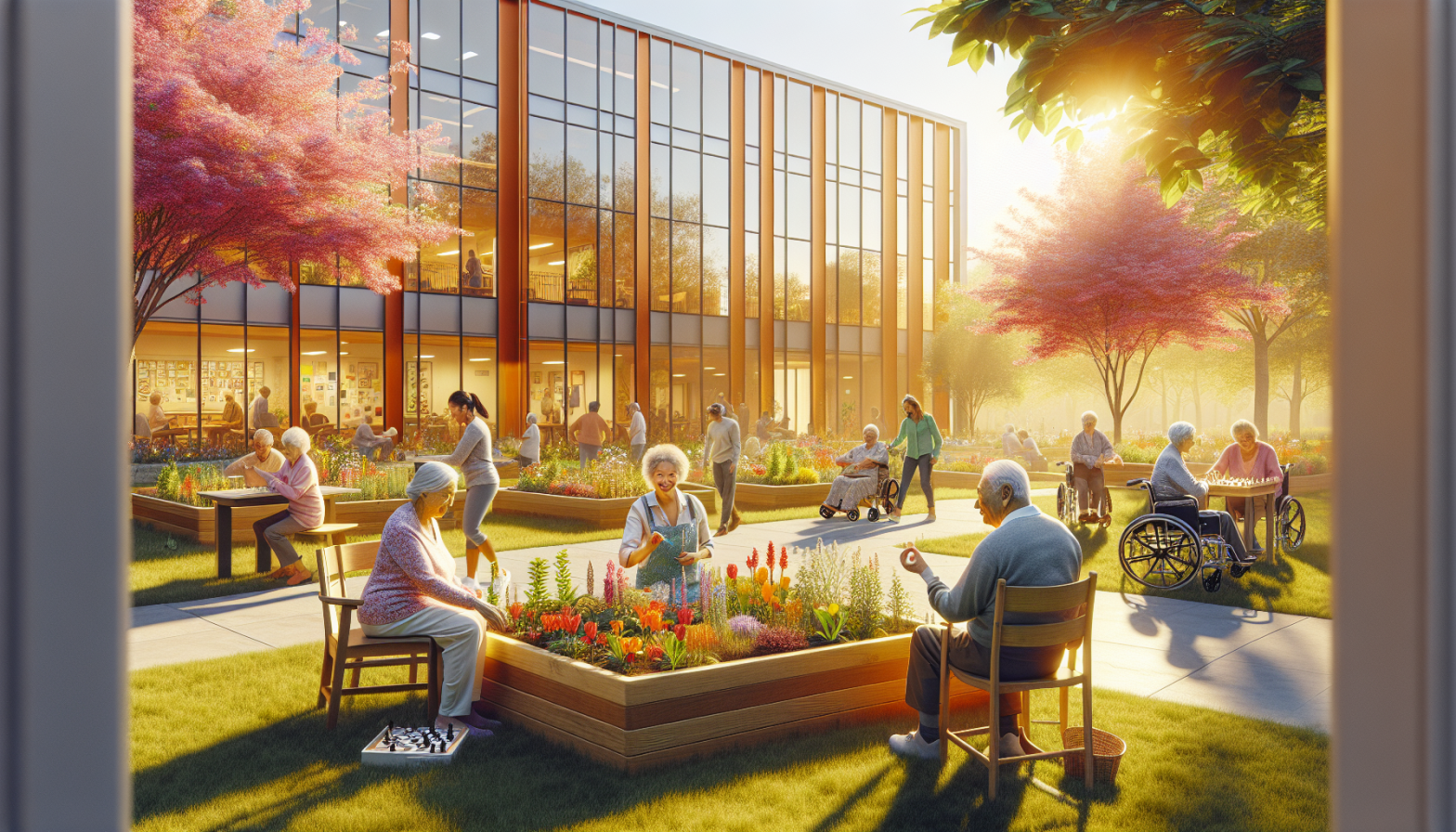As seniors age, finding engaging and supportive activities becomes increasingly important for their well-being. Free senior day programs offer a valuable solution, providing opportunities for socialization, cognitive stimulation, and physical activity without financial burden. These programs, often available through community centers, adult day services, and local organizations, play a crucial role in enhancing the quality of life for older adults.
This article explores the world of free senior day programs, offering insights on different types available and resources to locate them nearby. It delves into potential funding options for those seeking additional support and highlights the numerous benefits these programs bring to seniors’ lives. By the end, readers will have a comprehensive understanding of how to access and make the most of these essential community services.
Types of Free Senior Day Programs
Social Adult Day Care
Social Adult Day Care programs offer structured activities for functionally impaired adults. These services include socialization, supervision, personal care, and nutrition. Programs may also provide assistance with daily living skills, case management, and caregiver support.
Adult Day Health Care
Adult Day Health Care centers provide intensive health, therapeutic, and social services for individuals with serious medical conditions. These programs offer medical assistance, physical therapy, and specialized care for those at risk of requiring nursing home care.
Alzheimer’s Day Care Resource Centers
Alzheimer’s Day Care Resource Centers (ADCRCs) cater to individuals with Alzheimer’s disease, dementia, or related memory disorders. These centers offer specialized care, support groups for caregivers, and activities designed to maintain cognitive function and enhance quality of life.
Specialized Programs
Some adult day programs focus on specific populations, such as those with similar cultural backgrounds or younger adults with developmental disabilities. These tailored programs ensure participants receive care that addresses their unique needs and preferences.
Resources for Locating Free Programs
Area Agencies on Aging
Area Agencies on Aging (AAAs) are vital resources for seniors seeking free day programs. These organizations coordinate and offer services that help older adults remain independent, including assistance with daily living skills and caregiver support. AAAs make it possible for seniors to choose services and living arrangements that suit them best.
Eldercare Locator
The Eldercare Locator, accessible at 1-800-677-1116, is a valuable tool for finding local senior services. This resource connects older adults and their families with support services in their communities. Information specialists are available to provide guidance on available services and resources.
Local Senior Services Departments
Local information and assistance programs can help seniors locate needed services. Many communities have departments dedicated to senior services, offering resources and support for older adults. These departments often provide information on free senior day programs in the area.
Online Directories
Online resources like Alternatives for Seniors and Senior Directory offer comprehensive information on senior housing, care services, and free programs. These directories provide up-to-date details on various options available to seniors, making it easier to find suitable free day programs.
Funding Options for Senior Day Programs
Medicaid Waivers
Medicaid waivers offer low-income individuals access to adult day care services. Requirements vary by state, and waiting lists may apply due to enrollment caps. Some state plans cover adult day care with stricter financial criteria.
Veterans Benefits
Veterans enrolled in VA health care may be eligible for adult day health care services, subject to medical need and availability. Co-pays may apply based on disability status and financial situation. The Aid & Attendance benefit can also cover adult day care costs for qualified veterans and surviving spouses.
Grants and Scholarships
Various organizations offer grants and scholarships for older adults returning to education. These include the James and Patricia Sood Scholarship, Adult Student Grant, and Return2College Scholarship. Some programs, like the Senior Citizen Non-Degree Auditor Program at Georgetown University, provide reduced fees for seniors auditing classes.
Sliding Scale Fees
Sliding scale fees adjust costs based on income, making services more affordable for those with limited financial resources. This model helps practices manage expenses while providing care to patients who can’t afford full fees. The U.S. Federal Poverty Guidelines often determine fee structures, with patients below the poverty level receiving the minimum fee.
Benefits of Senior Day Programs
Socialization Opportunities
Senior day programs offer valuable chances for older adults to interact with peers, reducing social isolation and loneliness. These programs typically include group activities, games, and social events that foster connections and improve mental well-being.
Health Monitoring
Staff at adult day care centers provide essential health services, including monitoring vital signs, administering medications, and observing physical and cognitive changes. This regular oversight helps detect health issues early, potentially preventing complications and reducing healthcare costs.
Caregiver Respite
These programs offer much-needed breaks for caregivers, allowing them to attend to personal responsibilities or simply recharge. This respite can significantly reduce caregiver stress, burnout, and depression, ultimately improving the quality of care provided at home.
Improved Quality of Life
Participation in adult day programs enhances seniors’ overall quality of life. Through structured activities, physical exercise, and social engagement, these programs help maintain cognitive function, improve sleep quality, and promote a sense of purpose and community among older adults.
Conclusion
Free senior day programs have a significant impact on the lives of older adults and their caregivers. These programs offer a range of benefits, from providing chances to socialize and engage in meaningful activities to offering essential health monitoring services. They also give caregivers much-needed breaks, helping to reduce stress and burnout. By tapping into local resources and exploring various funding options, seniors can access these valuable services without financial strain.
As the population ages, the importance of these programs continues to grow. They play a crucial role in helping seniors maintain their independence, improve their quality of life, and stay connected to their communities. For families and caregivers looking to support their loved ones, exploring free senior day programs is a step worth taking to ensure older adults receive the care and engagement they need to thrive in their golden years.












